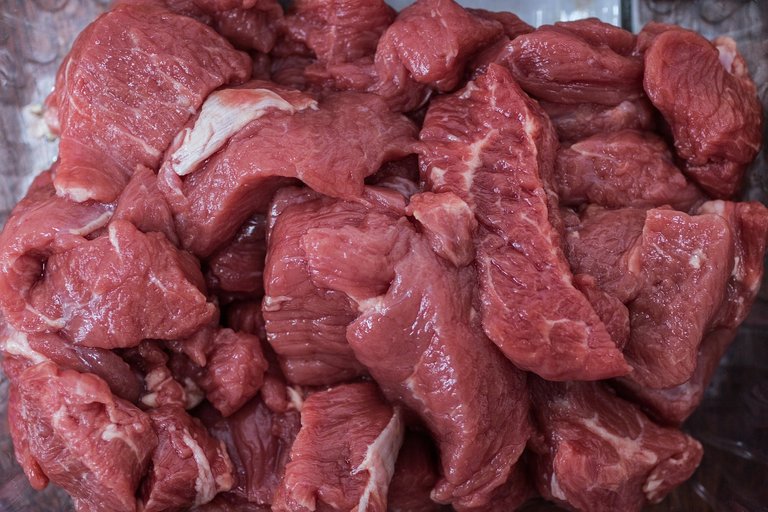Paving the Way to a Sustainable Future of Food - Exploring Lab-Grown Meat and Plant-Based Alternatives
Throughout history, humans have been known to consume meat as a vital part of their diet. From the early days of our existence, we utilized stones and animal bones as weapons to hunt and secure food. Archaeological evidence reveals that hunting for game and consuming meat has been ingrained in our culture for millions of years.
Meat is very good, and we know that by eating meat, we were able to reserve the energy required to digest plants which are more complex to digest compared to meat. So we are known as meat eaters and yearly we consume about 365 million tons of meat, and unlike in the past when we have to hunt them, we can get this meat on our tables without leaving the comfort of our rooms.
It is no doubt that meat consumption would continue to increase our meat consumption but then we need to know that our increased craving for meat is going to contribute to destroying our climate if something is not done about it. Meat is a major contributor to Earth's greenhouse gases, and the production of food generally makes up 1/3 of the entire greenhouse gas emission. A lot of groups especially vegans have called for the complete cut out of beef from our diet but as humans we so much love meat that it would be close to impossible to get humans to give up meat from their diet (only unless there is a pandemic caused by meat-eating).
While the elimination of meat is close to impossible, finding meat alternatives are possible. One of these alternatives is to grow meat in the lab, thereby eliminating the rearing and killing of animals. You might be thinking that it is a relatively new idea and would take a long time but the idea of lab-grown meat has been existing since 1931 Winston Churchill on Fake meat said that we shall escape the absurdity of growing a complete chicken for the purpose of eating wings and breast, by growing the parts separately in a suitable medium.
Although Winston Churchill had the idea in 1931, it was not until 2013 that the first lab-grown burger was eaten. The process uses regenerative science to grow meat in the lab without the need for an animal. You see, in the lab, this meat is grown from stem cells which is gottem from the cow, without killing or harming it, then the stem cells, for instance muscle stam cells are placed in a bioreactor where a mixture of nutrients, growth hormone, amino acids, and fetal Bovine Serum, which makes the cells replicate and be alive. Through other processes, these stem cells are turned into different types of cells such as muscle cells and fat cells. When muscles cells keep growing, they become myotubes where they are muched to become beef burgers. Depending on where the cell is gotten from, chicken for chicken nugget, and so on.
While we have had the ground success, we have not been able to create a full wing, or chicken breast, or possibly a cow tail from these stem cells. If we are to look at meat made from fetal Bovine Serum, is gotten from dying fetuses of cows that were slaughtered, so it shows that it isn't a fully non animal meat. Fetal Bovine Serum is gotten from cow fetus, where its blood is drained. It is then converted to a serum which is needed to allow the stem cell to grow in the external media instead of dying. FBS based meat is commonly expensive as it cost a lot to produce the lab grown meat.
It is no doubt that lab meat is really far from being where it wants to be, what about plant based meat. Personally, I haven't had a taste but how would it taste, seeing that even using stem cells, wings and breast haven't been made. Plant based meat have been used by impossible burger and beyond burger. It is made from Soy and Pea protein. In recent times, people aren't really eating plant based burgers because let's say we have a lot of interest in meat than plant based meat.
Researchers are actively working on finding alternatives to fetal bovine serum to make lab-grown meat more affordable and sustainable. Various sources, including hormones, plant proteins, and other animal-derived substances, are being explored. The goal is to create lab-grown meat that is free from animal-based components, ensuring a more ethical and environmentally friendly production process.
As we continue to seek ways to balance our love for meat with the need for environmental responsibility, the development of lab-grown and plant-based meat alternatives holds promising potential for a more sustainable future
- https://rootsofprogress.org/winston-churchill-futurist
- https://edu.gcfglobal.org/en/thenow/what-is-labgrown-meat/1/#
- https://www.ncbi.nlm.nih.gov/pmc/articles/PMC4419201/
- https://www.ncbi.nlm.nih.gov/pmc/articles/PMC8929989/
- https://pubmed.ncbi.nlm.nih.gov/28800376/
- https://www.sigmaaldrich.com/NG/en/products/cell-culture-and-analysis/cell-culture-supplements-and-reagents/fbs
- https://www.foodingredientsfirst.com/news/mosa-meat-eliminates-fetal-bovine-serum-from-the-cultivation-equation.html
- https://www.ncbi.nlm.nih.gov/pmc/articles/PMC9478980/

Hi, I am Tobi a writer, speaker, relationship blogger, and lover of good music. I love making friends and learning from people. Want to hear me speak on relationships and general life issues, you can find my youtube channel where you can listen and watch any episode for free, please do not forget to subscribe, friends. I sincerely appreciate every love I get from here, kindly do well to keep them coming.


The consumption of cows for beef and other animals for meat would keep increasing as more countries increase in wealth over the years. We have this tradition of having meat in our everyday food and while lots of research are carried out to have meats without killing animals, and also reducing the number of animals being reared to help reduce greenhouse gases, people will still continue to eat meat from animals because they are used to doing so unless there is a kind of disease outbreak that can warrant for the complete stop of eating them. While we talk about livestock meat, we need to understand that a lot of agricultural activities affect our climate and the earlier we start to find solutions to them the better it would be for ourselves and the next generation.
Yay! 🤗
Your content has been boosted with Ecency Points, by @oluwatobiloba.
Use Ecency daily to boost your growth on platform!
Support Ecency
Vote for new Proposal
Delegate HP and earn more
Thanks for your contribution to the STEMsocial community. Feel free to join us on discord to get to know the rest of us!
Please consider delegating to the @stemsocial account (85% of the curation rewards are returned).
Thanks for including @stemsocial as a beneficiary, which gives you stronger support.
Lab-grown meat has been my hope, and often my reply to vegans, ever since the technology was still very nascent. Historically, humanity rarely achieves its moral goals by shaming and guilt-tripping people. Instead, you try to fix it with technology, you make the good choice easier. I believe the same goes for climate change. If we're betting on people caring, we're screwed. Instead, we should invest in cheap technological solutions.
Did not know the tidbit about Winston Churchill. Guy was far ahead of his time!